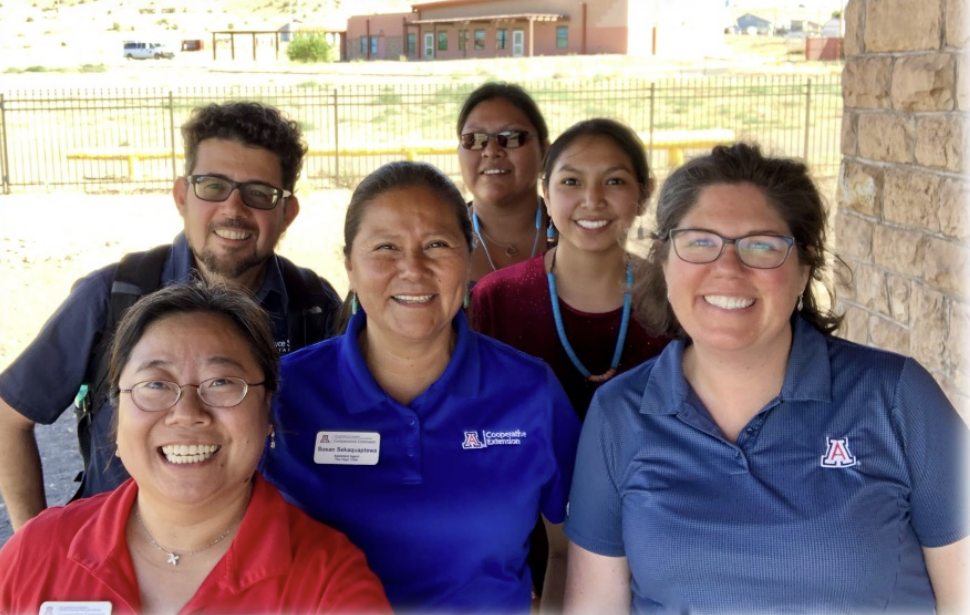
- Details
- By Michael Pisetsky Research, Innovation & Impact
One in six people in the U.S. fall ill from foodborne illness every year. Roughly 3,000 Americans die from foodborne illness annually. In 2011, the Food Safety Modernization Act (FSMA) was signed into law to combat this problem through preventative measures.
The FSMA—which outlines rules to ensure the safety of the food supply including specific actions that must be taken at every step of food production to prevent contamination—does not legally apply to Indigenous tribes as they are sovereign nations with their own rules and regulations regarding food safety. However, for Tribal food producers to sell their goods in the American market, they must meet the standards set by the FSMA.
[This article was originally published by UArizona Impact in Action newsletter. Used with permission. All rights reserved]
In order to combat the inequity tribal growers face in the American national food market, native and tribal food producers need access to FSMA policy trainings that are also respectful of their cultural practices. The University of Arizona Federally Recognized Tribal Extension Program (FRTEP) and partners have created the National Tribal Food Safety Alliance (TFSA) to offer just this. The alliance will ensure that tribal food producers are compliant with the FSMA, keeping them competitive within the national food market.
“This poses some unique challenges,” said Trent Teegerstrom, the senior associate director of the UArizona Tribal Extension Program. “The tribes have different governments, different access to water, and different customs. We have to find avenues to maintain their practices while ensuring that the food is safe to sell in the American market.”
UArizona FRTEP’s partners in the alliance include the University of Arkansas’s Indigenous Food and Agriculture Initiative (IFAI) and the Intertribal Agricultural Council (IAC).
Arizona is the only state in the nation in which more than half of all farmers and ranchers are Native Americans according to the USDA’s Agricultural Statistics Service Census of Agriculture. Nearly 80% of all farmland in Arizona, roughly 21 million acres, are tended to by producers in any of the state’s 22 Native American tribes. In 2012, native growers sold $67M worth of agricultural products.
The success of native and Tribal agriculture is critical to not only the Arizonan agriculture industry, but to the nation as a whole.
The alliance is not only continuously developing new curricula for tribal growers, but is also improving the FSMA itself by uncovering what it is missing in terms of tribal food safety and creating local labs to address the needs of individual tribes.
The lessons have to be given by trainers certified by the Food and Drug Administration (FDA). These trainers undergo rigorous teaching themselves in food safety, and how to appropriately train Tribal growers. Shujuan “Lucy” Li is an entomologist at UArizona and an FDA-certified trainer for the alliance.
Li has already completed hands-on training with growers from the Navajo, Yavapai, and Hopi nations. Out of the 22 native nations in Arizona, she has thus far cultivated relationships with professionals in 16 of them.
“Overall, the goal is to prevent foodborne illness. We have an opportunity to integrate food safety, pest management, and public health, but we have to respect native customs while following the FSMA strictly,” Li said. “If we can successfully train and incorporate Indigenous knowledge into this process, we can create a generation of future leaders and trainers in food safety.”
Help us defend tribal sovereignty.
At Native News Online, our mission is rooted in telling the stories that strengthen sovereignty and uplift Indigenous voices — not just at year’s end, but every single day.
Because of your generosity last year, we were able to keep our reporters on the ground in tribal communities, at national gatherings and in the halls of Congress — covering the issues that matter most to Indian Country: sovereignty, culture, education, health and economic opportunity.
That support sustained us through a tough year in 2025. Now, as we look to the year ahead, we need your help right now to ensure warrior journalism remains strong — reporting that defends tribal sovereignty, amplifies Native truth, and holds power accountable.
 The stakes couldn't be higher. Your support keeps Native voices heard, Native stories told and Native sovereignty defended.
The stakes couldn't be higher. Your support keeps Native voices heard, Native stories told and Native sovereignty defended.
Stand with Warrior Journalism today.
Levi Rickert (Potawatomi), Editor & Publisher

